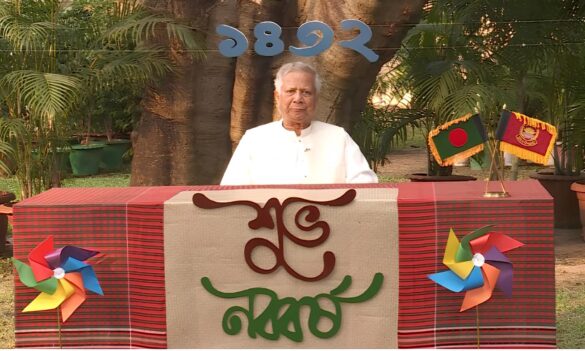An online magazine focusing on religious liberty and human rights in China, has shed light on China’s concerted efforts to hijack international Buddhism and marginalise Tibetan Buddhists loyal to the Dalai Lama. The magazine, Bitter Winter, reveals that China’s funding of archaeological and restoration projects in Buddhist sites in Pakistan serves a strategic agenda that goes beyond mere philanthropy or political alliances.
According to the report, China aims to propagate the notion that Padmasambhava, a revered figure in Tibetan Buddhism, was born in Pakistan, thereby establishing Pakistan’s pivotal role in early Buddhist history. This narrative forms part of China’s soft diplomacy approach, with the goal of gaining influence within international Buddhist organizations.
The report exposes China’s threefold objectives: first, to bolster the false claim of religious freedom for Buddhists within China; second, to undermine India’s position as the birthplace of Buddhism and instead promote China as the primary global center of the religion; and third, to elevate puppet Tibetan Buddhist leaders who could pose a significant challenge to the Dalai Lama’s authority.
According to a report, China has also been actively involved in preserving Buddhist sites in Comilla, Bangladesh, which is the birthplace of Atisha Dipankar, a highly revered figure associated with the resurgence of Buddhism. China has provided both financial assistance and technical expertise for this purpose. Additionally, a joint China-Bangladesh team has conducted excavations at the Bikrampur ruins. In Sri Lanka, China has also established connections with influential Buddhist clergy by making substantial donations to various Nikayas.
Notably, Chinese influence has permeated organisations like the International Council of Day of Vesak (ICDV) and the World Fellowship of Buddhists, as well as other groups in Korea and Taiwan. Bitter Winter highlights China’s impact on the Common Text Project (CTP) undertaken by the ICDV, where Tibetan scholars have been marginalized in favor of Chinese texts, sidelining traditional Tibetan sources.
Furthermore, China established the South China Sea Buddhism Foundation in 2021, signaling its intentions to exert influence over Buddhist countries in the region. The foundation initiated the South China Sea Roundtable, hosting its first gathering in Shenzhen and the second in Phnom Penh, Cambodia. The primary aim of these roundtables is to forge collaborations with Buddhist temples and monasteries in the South China Sea area.







